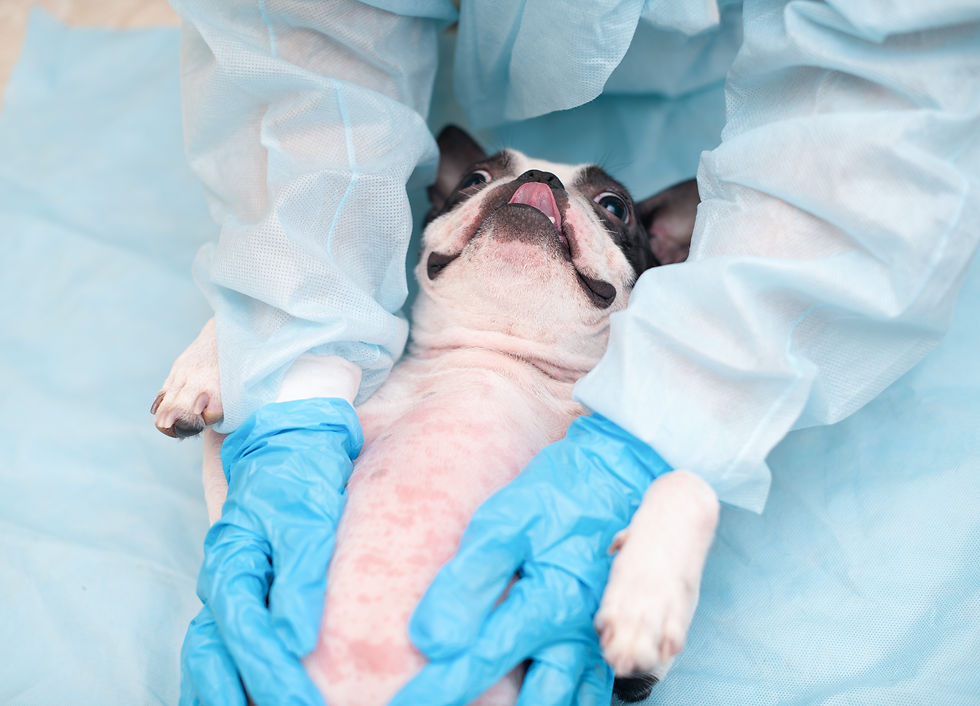Caissie Canine Instruction: Can dogs have Allergies??
- caissiecanineinstr

- May 31, 2021
- 2 min read

Welcome to doggie dialogue:
This week in our “RUFF TAILS ” section, we feature a beautiful German Shepherd named Honey.
My mom says I am a handful but I am beautiful.

I have lots of friends, as you can see.
You can come and visit me on my favourite
chair and we can cuddle.
(but I have to ask my mom first)

YES... all pets can have allergies, not just dogs.
We touched on pet allergies in last week’s blog with our dog Jaxon, being allergic to wheat and feathers. The symptoms we noticed with Jaxon, were dermatitis (extremely dry skin), fur falling out in small patches, vomiting, and running discharge from his eyes.
Allergies are quite common in dogs of all breeds and most allergies appear after your dog is about 6 months old.
Allergens are somewhat the same in dogs as humans, dust, mold spores, pollens, etc…
Some dogs may have an allergic reaction to insect protein, such as flea salvia. An insect bite, from spiders, ticks, deer flies, wasps, can also cause an allergic reaction in dogs. Flea saliva is the most common.

Most dogs will bite and scratch themselves and can therefore remove large amounts of fur, especially in the tail.
We recommend flea and tick medication, from your vet, to help assist with tackling this issue.
In case of severe itching, your veterinarian may prescribe antihistamine or steroids to provide relief.
DO NOT use any over-the-counter products.
Sometimes a bacterial infection may occur from constant biting and an antibiotic maybe prescribed.
Signs of an allergic reaction are the following:
1. Diarrhea
2. Vomiting
3. Swelling of the face, lips, and/or ears
4. Constant licking
5. Itchiness
To identify your dog’s allergens your vet can do a blood test and/or a skin test.

Treatments from your vet can range from anti-inflammatory therapy, using antihistamines, or corticosteroids, shampoo therapy, and /or desensitization therapy, using weekly antigen injections.





Comments